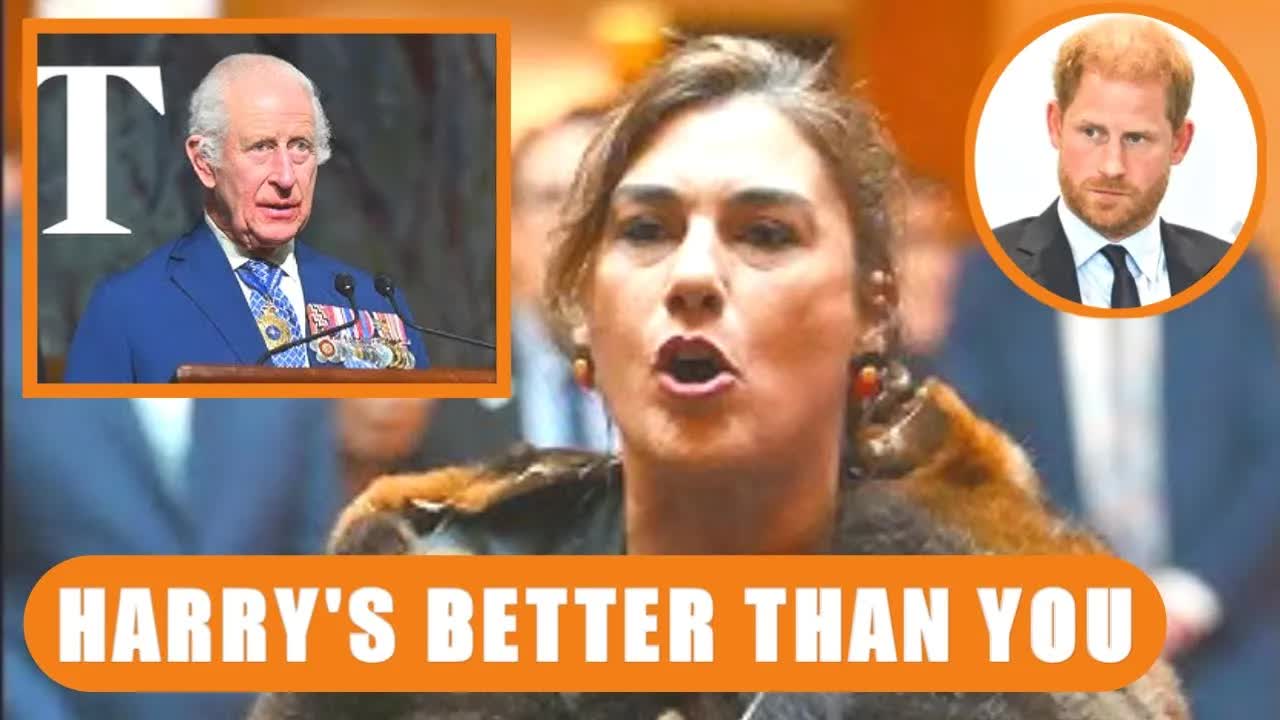In a dramatic turn of events during King Charles III’s recent visit to Australia, Senator Lydia Thorpe confronted the monarch, unleashing a barrage of accusations that have ignited a national debate.
Known for her fervent advocacy for indigenous rights, Thorpe’s outburst has drawn both ire and support, leaving many Australians questioning the boundaries of respectful discourse in political activism.
As King Charles addressed the Australian Parliament, Thorpe interrupted with a vehement declaration, “You are not my king!” Her passionate demands for reparations and a treaty for indigenous Australians echoed through the Great Hall of Parliament House, a venue typically associated with dignity and decorum.
Instead, it became a stage for what some are calling an embarrassing display of chaos.
Thorpe’s tirade included graphic calls for the return of ancestral remains, which she claimed were taken during colonial times.
She accused the monarchy of complicity in genocide against indigenous populations, a claim that struck a nerve among many Australians.
Critics argue that while her cause is just, the manner in which she chose to express her grievances was wholly inappropriate.
The backlash against Thorpe was swift.
Many citizens expressed their outrage, asserting that her behavior not only disrespected King Charles but also undermined the institution of the monarchy itself.
One commentator noted, “Who told Lydia Thorpe she could speak for us?” This sentiment reflects a broader concern about the standards of conduct expected from public figures, particularly in the presence of a visiting head of state.
Even Prime Minister Anthony Albanese weighed in, labeling Thorpe’s actions as “disrespectful.” He emphasized that such behavior does not align with the expectations placed on parliamentarians.
This incident has drawn parallels to the ongoing discussions surrounding Harry and Meghan Markle, who have positioned themselves as advocates for social justice while simultaneously critiquing the monarchy.
Thorpe’s confrontation seems to resonate with the sentiments expressed by the Duke and Duchess of Sussex.
However, aligning herself with their narrative may alienate a significant portion of the Australian populace that still holds the monarchy in high esteem.
The couple’s controversial choices, including stepping back from royal duties, have already polarized opinions, and Thorpe risks deepening that divide.
While Harry and Meghan have garnered support for their advocacy on issues like mental health, they have also faced criticism for what many see as a lack of respect for royal traditions.
Thorpe’s actions can be perceived as an extension of this trend—an attempt to challenge the monarchy that blurs the lines between advocacy and disrespect.
In a nation that prides itself on democratic values, Thorpe’s outburst raises critical questions about the limits of free speech.
Advocating for indigenous rights is vital, but there are appropriate avenues for such discussions.
Yelling at a monarch during an official address is not one of them.
King Charles has spent decades building relationships with indigenous communities, and his visit was intended to foster dialogue and reconciliation.
By interrupting him, Thorpe not only undermined this opportunity but also disrespected the historical continuity that the monarchy represents for many Australians.
This incident has sparked a national debate about respect, representation, and the monarchy’s role in modern Australia.
While Thorpe’s commitment to indigenous rights is commendable, her method of expression has drawn widespread condemnation.
As Australia confronts its colonial past, engaging in respectful dialogue is essential for progress.
In a world where figures like Harry and Meghan continue to challenge the monarchy’s relevance, it’s crucial to remember that respect for tradition and decorum matters in any democratic society.
The hope is that future discussions about the monarchy and indigenous rights can occur with the dignity they deserve, fostering unity rather than division.
As this incident reverberates through the country, Australians are left to ponder the balance between passionate advocacy and the respect owed to institutions that shape their national identity.
Related Stories

